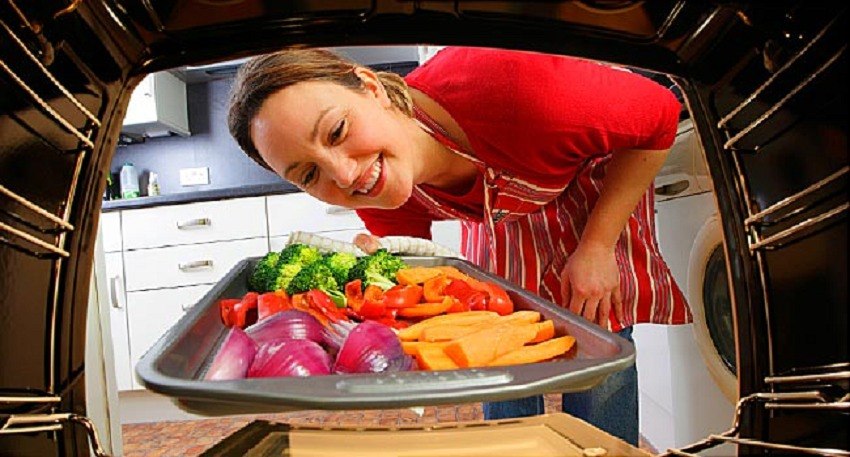The Basics of a Healthy Diabetes Diet
 Health & Fitness
Health & Fitness
If you have diabetes, the right foods can be an ally in your fight to keep your blood sugar levels in check.
Talk to your doctor, a registered dietitian, or a diabetes educator about how to keep track of how many carbs you eat. That can affect your blood sugar. They may recommend that you use the glycemic index. It ranks how different foods raise your blood sugar. The higher the index, the more it raises your levels.
Also, try these tips:
Make your plate colorful. That's an easy way to be sure you eat plenty of fruits, veggies, whole grains, beans, nuts, and lean protein.
Watch your calories. Your age, gender, and activity level affect how many you need to eat to gain, lose, or maintain your weight.
Go for fiber. You can get it from foods like whole grains, fruits, veggies, beans, and nuts. If you have type 2 diabetes, a high-fiber diet can improve your blood sugar and cholesterol levels.
It’s always best to get fiber from food, but supplements can also help you get the daily fiber you need. Examples include psyllium and methylcellulose.
Increase your fiber slowly. Otherwise, you may have gas and cramping. It’s also important to drink more liquids.
How Much Can You Eat?
Check the serving sizes on nutrition labels. Servings may be smaller than you think. Eat only the amount of food in your diabetes meal plan. Extra calories lead to extra fat and pounds.
Don't skip meals, though. Eat them, and snacks, at regular times every day.
What Is the TLC Diet for Diabetes?
If you also have high cholesterol, your doctor probably will recommend something called the TLC (Therapeutic Lifestyle Changes) plan.
The goal is to lower your cholesterol level, drop extra weight, and get more active. That helps prevent heart disease, which is more common when you have diabetes.
On the TLC diet, you will:
- Limit fat to 25%-35% of your total daily calories.
- Get no more than 7% of your daily calories from saturated fat, 10% or less from polyunsaturated fats, and up to 20% from monounsaturated fats (like plant oils or nuts).
- Keep carbs to 50%-60% of your daily calories.
- Aim for 20-30 grams of fiber each day.
- Allow 15%-20% of your daily calories for protein.
- Cap cholesterol at 200 milligrams per day.
You'll also need to get more exercise and keep up with your medical treatment.
Can You Have Sugar?
You might have heard that people with diabetes shouldn't have any table sugar. While some doctors say that, others take a more forgiving view.
Most now say small amounts of the sweet stuff are fine, as long as they're part of an overall healthy meal plan. Table sugar doesn’t raise your blood sugar any more than starches.
Remember, though, that sugar is a carb. So when you eat sweet foods like cookies, cake, or candy, don’t eat another carb or starch (for example, potatoes) that you would’ve eaten that day.
In other words, substitute, don't add. Ultimately, the total grams matter more than the source of the sugar.
Account for any food swaps in your carbohydrate budget for the day. Adjust your medications if you add sugars to your meals. If you take insulin, tweak your dose to account for the added carbs so you can keep your blood sugar under control as much as possible. Check your glucose after eating sugary foods.
Read food labels, so you know how much sugar or carbs are in the things you eat and drink. Also, check how many calories and how much fat are in each serving.
Other Sweeteners
You can add artificial ones to your food and drinks. Many have carbs, though, so check the label carefully. If necessary, adjust the other foods in your meal or your medication to keep your blood sugar under control.
Certain sweeteners called sugar alcohols have some calories and can slightly raise your glucose levels. If you eat too much of them, you can get gas and diarrhea. Examples include:
- Xylitol
- Mannitol
- Sorbitol
You can also use stevia to make things sweet. It's a natural product with no calories.
What About Alcohol?
Ask your doctor if it's OK for you to drink booze. If he says yes, only do it occasionally, when your blood sugar level is well-controlled. Most wine and mixed drinks have sugar, and alcohol also has a lot of calories.
Source: webmd.com




